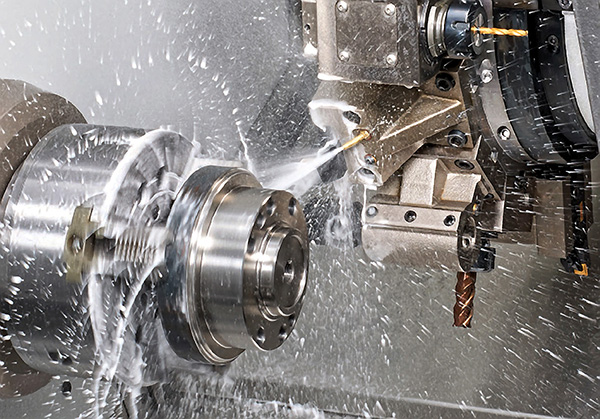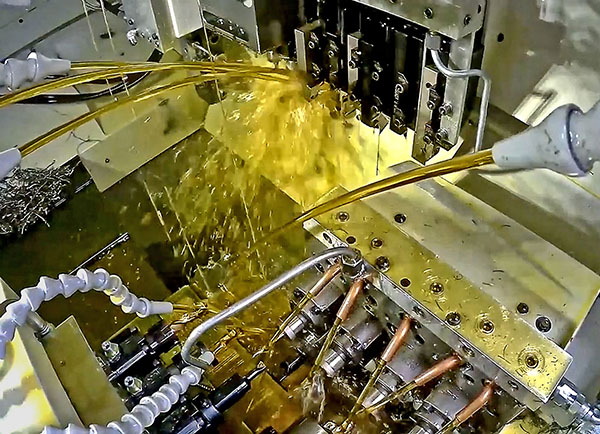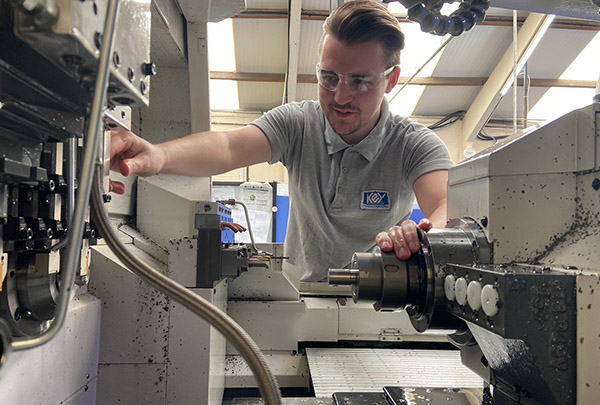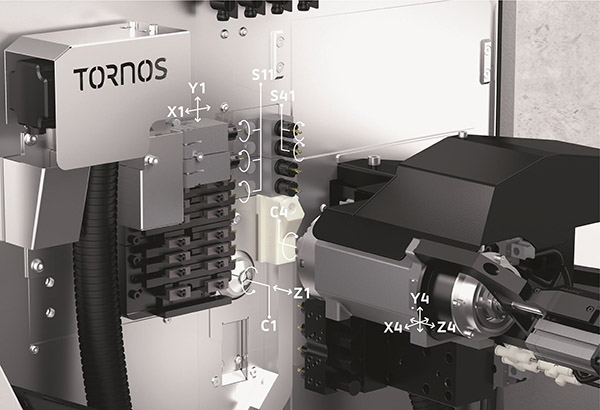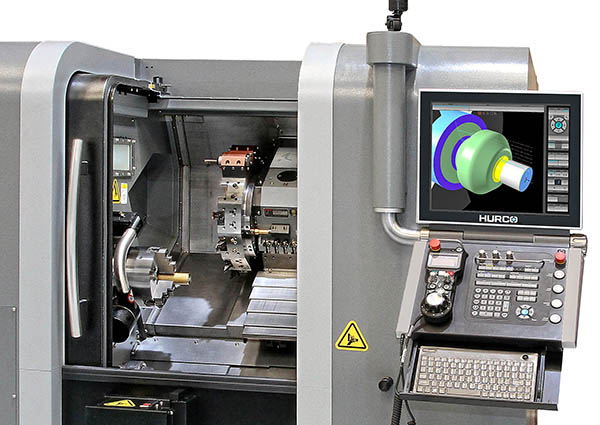Mildenhall subcontractor CTPE uses CNC machining centres, as well as fixed- and sliding-head CNC lathes, to manufacture complex, high-precision components for the scientific, medical, electronics and defence sectors.

The latest addition to the plant list is a Biglia B620 YS fixed-head turn-mill centre with Y axis and sub-spindle (both optional) supplied by Whitehouse Machine Tools
CTPE’s new B620 YS is meeting a five-fold increase in demand for a tight-tolerance aluminium connector that forms part of medical equipment needed in the fight against COVID-19. The company has been making the component for the past 15 years on a Y-axis lathe with a single spindle, which meant that the part had to be re-fixtured by hand on the same machine for a second operation, following which manual deburring was necessary.
Using the Biglia, the component is now produced in larger volumes much faster, as well as more accurately and consistently in a single hit, deburring being included in the machining cycle to allow the shipment of 600 parts every week. This elevated supply rate started at the beginning of April and is likely to continue through to September 2020.
Alex Taylor, CTPE’s operations director, says: “The reason for buying the lathe was a significant uplift in orders from the medical industry in general, not only for the connector part. However, we were also on the lookout for a machine capable of raising turn-milling productivity across the board, including of larger components from billet.
“The Biglia provides a good balance for both types of turning,” he adds. “It produces parts up to 620 mm long and, with its sub-spindle, is ideal for one-hit machining. It has been operating 12 to 15 hours every day since it was installed and runs really well unmanned. Sometimes the machine is left for 10 hours without any manual intervention.”
For further information www.wmtcnc.com






